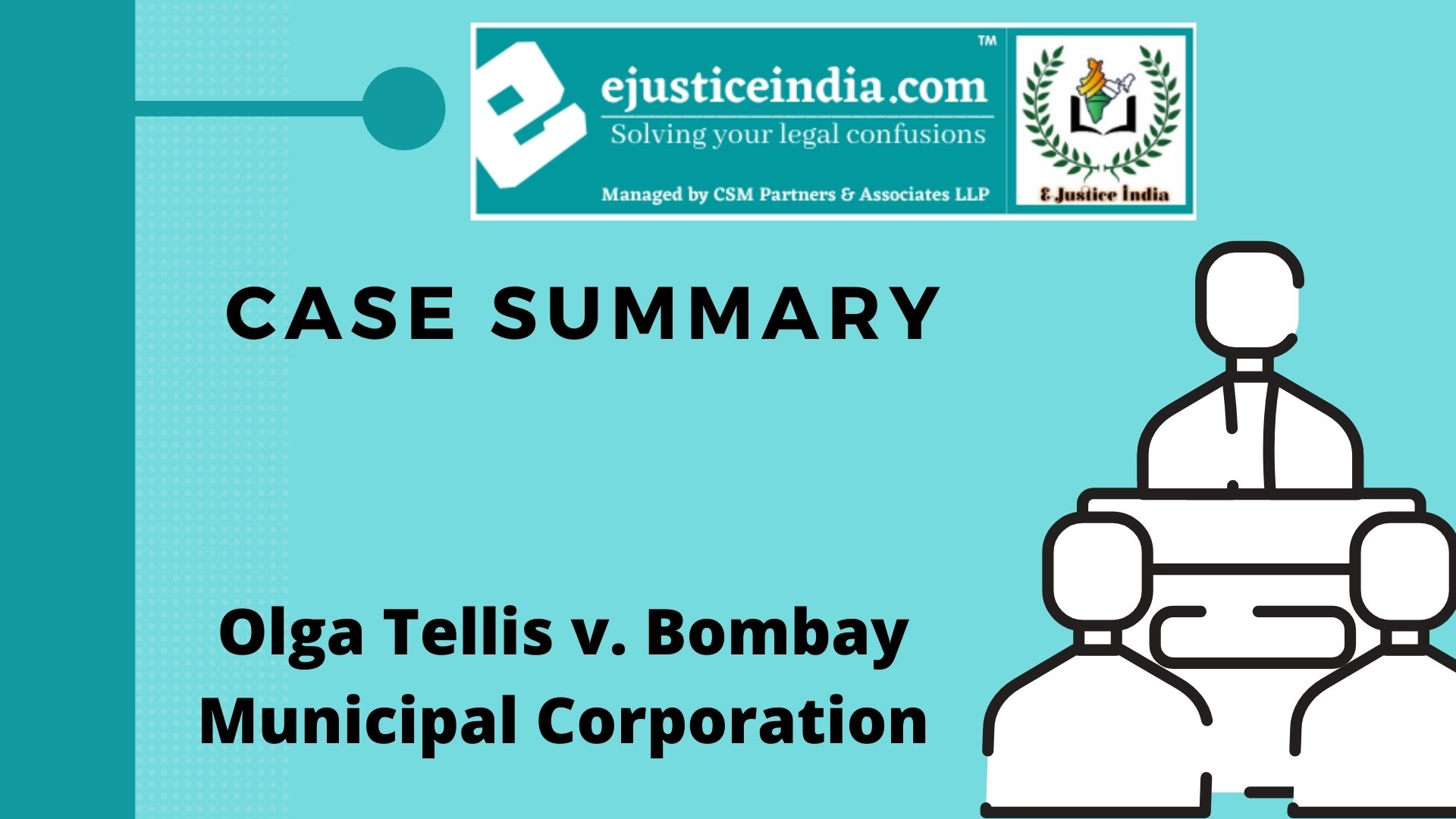Case Summary : K M Nanavati vs. State of Maharashtra
CASE NAME: K M Nanavati vs. State of Maharashtra
CITATION- AIR 1962 SC 605
DECIDED ON- 24th November, 1961
BENCH- K. Subbarao, SK Das, Raghubar Dayal
INTRODUCTION-
A landmark case in the criminal history of India, K.M. Nanavati v. State of Maharashtra has been a case discussed like ever since now. This judgment made its place as soon as it was pronounced.
This landmark judgement of India received unprecedented media attention as it involved Kawas Manekshaw Nanavati, a Naval Commander who was tried for committing the murder of his wife’s lover, Mr. Prem Ahuja. Initially, Nanavati was declared not guilty, but later the verdict was dismissed by the Bombay High Court and the case was tried under a bench trial.
This case was the last case to be heard as a jury trial in India because as the result of this case, the government abolished the jury trials in India.
FACTS OF THE CASE-
Kevas Manekshaw Nanavati, an Indian Naval Officer shifted to Bombay in March 1959 with his family and got to meet Prem Bhagwandas Ahuja, a businessman in Bombay. While he was out of Bombay for his duty, Sylvia, his wife, developed an illicit relationship with Prem Ahuja. He was then confronted with the confession of his wife when she opened with her relationship with Ahuja. Further, in the heat of his agony, he went to his ship to procure a loaded revolver and drove himself to Prem Ahuja’s office. On not finding him at his workplace, he then drove to his residence. After an altercation, at his residence, two shots went off accidently and hit Ahuja. Jury voted in favour of the accused. The case was referred to hon’ble High Court under Section 307 of The Code of Criminal Procedure. The Division Bench of the High Court went on to declare the accused guilty under Section 302 of IPC. An appeal was finally decided by the Supreme Court. The appellate court held that there were mis directions in the session’s court.
ISSUES/FACTS OF LAW
- Whether Nanavati shot Ahuja in “the heat of the moment” or whether it was a premeditated murder?
- Whether SLP (Special Leave Petition) can be entertained without fulfilling the order under Article 142?
TEST OF GRAVE AND SUDDEN PROVOCATION-
- Whether a reasonable man, belonging to the same class of the society as the accused, placed in the same situation would be so provoked as to lose his self-control.
- For instance, in India words, gestures and mental background created by the previous act of the victim may also be considered.
- The fatal blow should be clearly traced to the provocation, influence of passion arising from and not after passion has cooled down by lapse of time, or otherwise giving scope for premeditation and calculation.
JUDGEMENT-
It was held by the court that the conduct of the accused clearly showed that the murder committed by him was a deliberate one and the facts of the case do not attract the provision of Exception I of section 300 of IPC as the accused by adducing evidence failed to bring the case under General Exception of IPC. Therefore, as a result, the court convicted Nanavati under section 302 of IPC and sentenced him of Imprisonment for Life.
JURY TRIAL- The jury in the Greater Bombay Sessions Court pronounced Nanavati as not guilty, with an 8-1 verdict. Hon’ble Mr. Justice Ratilal Bhaichand Mehta (the Sessions Judge) considered the acquittal as perverse and referred the case to the High Court.
HIGH COURT VERDICT- The High Court dismissed the Jury’s verdict on the basis of the following arguments made by the prosecutor-
- The onus of proving that it was an accident and not premeditated murder was on Nanavati.
- Sylvia’s confession, or any specific incident in Ahuja’s bedroom, or both did not amount to grave and sudden provocation.
- The judge wrongly told the jury that the provocation can also come from a third person.
- The jury was not instructed that Nanavati’s defense had to be proved, to the extent that there is no reasonable doubt in the mind of a reasonable person.
SUPREME COURT- The SC upheld the decision of the High court on the following grounds:
- As per the defence case, the accused was thinking of the future of his wife and a child which indicates that he had not only regained his senses but also was planning for the future.
- The time lapse between the confession and murder was sufficient to regain his self-control.
- The mere fact that before the shooting the accused abused the deceased and the abuse provoked an equally abusive reply could not conceivably be a provocation for the murder.



Magnificent beat ! I would like to apprentice while you amend your website, how could i subscribe for a blog site? The account helped me a acceptable deal. I had been tiny bit acquainted of this your broadcast offered bright clear idea